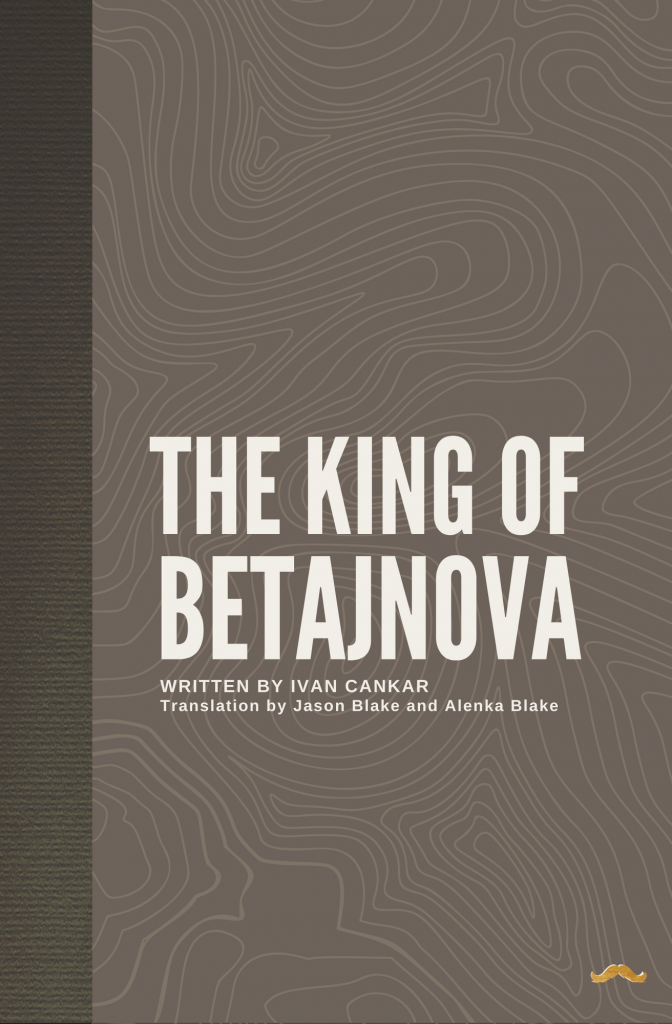Romantic Souls
Romantične duše
Romantic Souls (Romantične duše), was written in 1897, but not produced until 1922, four years after Cankar’s death. It offers masterful portrayals of two intersecting environments – the political coterie surrounding the consummately Machiavellian politician Mlakar, and the stiflingly bourgeois home in which young, orphaned Pavla Zarnikova lives with her guardians, Professor and Mrs. Mak. As long as Mlakar, a lifelong bachelor, maintains his leadership in the provincial political setting of the play, his allies are prepared to fall in step behind him to execute his astute machinations and thus strengthen their own positions. But as Mlakar declares to his entourage his intention to leave the cynicism and ethical squalor of politics behind in order to pursue a life of moral purity with the young woman he loves from afar (Pavla), his allies, suddenly doubting his sanity, begin to fall away and consider realigning themselves with Mlakar’s chief political opponent, Delak. The plotting, gossip and backbiting within Mlakar’s coterie, along with the verbal sparring between the two chief political antagonists, Mlakar and Delak, reveal that any thought of politics as a means toward achieving the greater good, if it ever existed, has been supplanted by hypocritical tactics and bare-knuckle power plays.
While Cankar’s attempt, in this first of his seven plays, to depict Mlakar’s inner conflict between cynic and idealist and the moments of anticlimax that result, may be the flaw that from the start prevented Romantic Souls from achieving the success of his other plays, it still manages to offer a searing condemnation of a political elite’s self-dealing and corruption revolving around the most brilliantly drawn, power-wielding cynic in the entire Cankarian cannon.
Jakob Ruda
Jakob Ruda, first published and produced in 1900, was Ivan Cankar’s debut as a dramatist and is one of his shortest plays. By the start of the action, its titular protagonist, the middle-aged scion of a wealthy family, has managed to squander nearly all of his inherited wealth in the course of decades spent gadding about Europe. Now bankrupt, he has returned to the family estate in a last, desperate attempt to find a way to remain solvent and extend his extravagant way of life. One after the other, he encounters witnesses to and victims of his past prodigal ways in a process of exposition that casts a spotlight on his uncanny combination of irresistible charm, heedless unscrupulousness and a consummate passive aggression which he uses to achieve his own self-serving ends without having to work for them. Over the course of the play, he gradually allows himself to become aware of the unbearable price his actions will exact from his daughter in the first and only time that Ruda has ever actually confronted the full impact of his manipulations of the lives of those around him.
Perhaps most remarkably for Slovenian and world drama, as Cankar wrote Jakob Ruda in 1898, he was inventing the same kinds of dramatically innovative failed attempts to communicate and misunderstood verbal cues, fuelled by the characters’ conflicting personal agendas and inability to bridge the gulf between each other that Anton Chekhov was just then writing into his own classic plays Uncle Vanya (1897), Three Sisters (1900) and The Cherry Orchard (1903).
For the Good of the Nation
Za narodov blagor
For the Good of the Nation (Za narodov blagor), was published and first produced in 1901, ans Cankar’s first comedic satire. As in the earlier Romantic Souls, we are introduced to two opposing political camps dominating the political life of the town where the play is set. First, the circle around Dr. Grozd, a deputy to the provincial assembly who is hosting a birthday celebration for himself timed around the visit to town of Aleksij von Gornik, a wealthy and highly influential, if enigmatic person whose support for local political causes has everyone convinced it will lead to great things happening. One of the more intelligent members of Grozd’s circle, the journalist Ščuka, provides a steadily skeptical counterpoint to the sycophantic praise and submissiveness that the others around him are only too ready to render up to their master. With the arrival at the reception of Grozd’s chief antagonists, Dr. Gruden and his formidable wife Mrs. Gruden, the competition between the two factions for Gornik’s attention attains an almost slapstick intensity. All their schemes, up to and including sexual entrapment, fail ludicrously, until we’re finally presented with Gornik, a near-perfect political cipher, in a private moment of candour puzzling over why people are always clamouring for a piece of him, when all he wants is to be left alone. The play ends with an offstage mob assembled outside the Grozd household, the taunting voice of its ringleader unmistakably that of the journalist Ščuka, now returned as nemesis of the powerful, as the bourgeois comedy of politics as endless jockeying for power rapidly devolves into a starkly symbolist portent of revolution.
The King of Betajnova
Kralj na Betajnovi
In King of Betajnova (1902, originally Kralj na Betajnovi), Ivan Cankar touches upon universal human traits portraying all levels of society in the rural village of Betajnova. With a crisp and clear style, Cankar introduces Jožef Kantor, a rich man whose soul is sullied by murder, greed for both money and property, and political ambitions. Kantor’s immorality is counterbalanced with Maks Krnec, whose father lost his store and pub to Kantor’s dealings. It is Maks, now a vagabond with nothing to lose, who comes to haunt “King” Kantor. The king seeks support in the local priest, unveiling a hypocrisy and corruption that runs throughout this village society. While tackling many obstacles, Kantor begs his family, including his adopted niece Nina, for support and love.
Depravity in St. Florian Valley
Pohujšanje v dolini Šentflorjanski
Depravity in St. Florian Valley is a farce written in 1907. Pohujšanje is considered one of Cankar’s best plays, depicting a conflict between a mob and a free thinking individual. In this highly symbolic play Cankar also explores the relationship between an artist and his audience. Cankar’s play reveals the tension between the idea to conform and to rebel. He vividly brings to life a world of a small minded village, symbolizing Slovenia, growing impatient and petty with an artist, an individual who refuses to conform to their silly demands, lies and intrigues. The play is a challenging piece for directors and due to its symbolic quality gets frequently staged in Slovenian professional theatres.
LACKEYS
Hlapci
Ivan Cankar conceived Lackeys (1910, originally Hlapci) as a political satire, albeit not a satire according to classical criteria. However, the unhappy fate of its main protagonist, the schoolmaster Jerman, an undaunted intellectual of high moral standards, who is ultimately forced to step back in the face of political pragmatism, self-centred pretension, abuses of power and manipulation, established a template for portraying political scheming that has hardly changed since the play was written more than 110 years ago. Cankar’s satire repeatedly turns into a bitter tragedy. Due to its ambiguous and evocative title, Lackeys has remained a paradigmatic text frequently used to label a Slovenian political condition and a collective attitude towards authority. Often analyzed and quoted, selected passages from the play have acquired various meanings, ranging from a devastating critique of a Slovenian national character to the slogans of emancipation and patriotism. Various characters from the play have become synonyms in Slovene for people of principle, decency, and high moral standards, or, conversely, for the absence thereof. Cankar’s unforgiving diagnosis of the nation continues to provoke, which makes each new staging of Lackeys a remarkable response to the play.
Beautiful Vida
Lepa Vida
Beautiful Vida (1911, originally Lepa Vida), which Cankar called a dramatic poem, is a modern adaptation of Prešeren’s take on a folk song about “Beautiful Vida”. The tale of Lepa Vida tells of a young woman whisked away from her poor and sickly husband and child, who is brought to care for the children of the Queen of Spain. She is eager to go, but once in Spain, she spends all her time gazing out the window across the sea, longing to return to her former life. This idea of longing, underscored in the ballad by Prešeren, is central to the play, and is combined with the motifs of a dilapidated sugar factory, a final refuge of dying poets and the downtrodden. It is set in the lodgings of the homeless, where they live next to Vida and her mother. As in the folk ballad, Vida longs for happiness in a different world, embodied here by the young landowner Dolinar. But Vida regrets her escape because the world of bourgeois bliss is alien to her; she prefers to return to the world of suffering, which is the only real source of longing, and that is the essence of life.
In terms of form, Lovely Vida is associated with symbolist lyrical dramaturgy as created by Maurice Maeterlinck and Oscar Wilde. It hints at melodrama from the naturalistic world of the bourgeois and proletarian struggle, but is transformed with the help of symbols into a lyrical dramatic poem.














